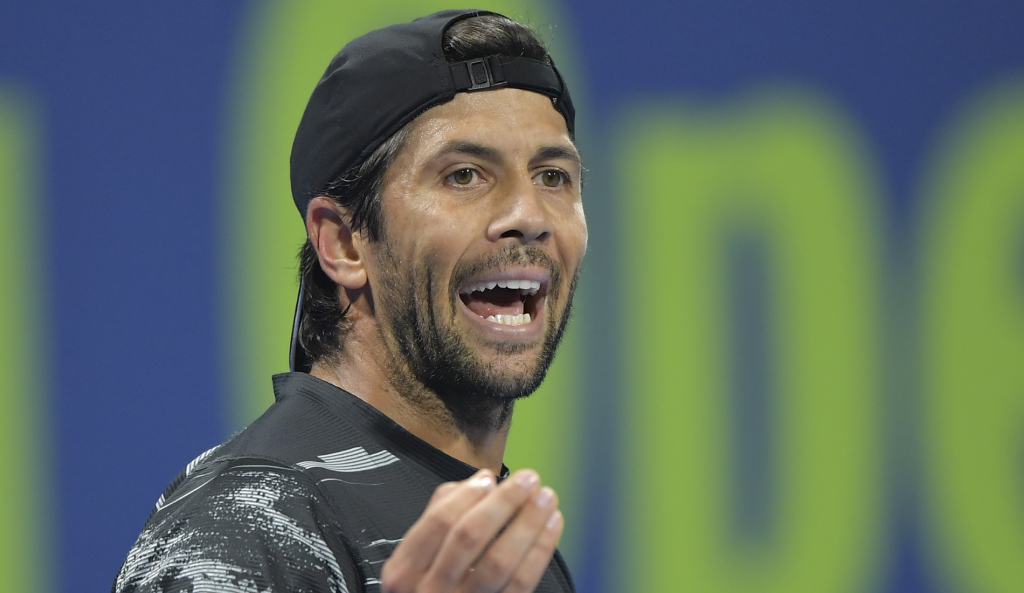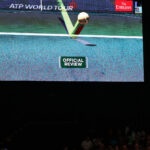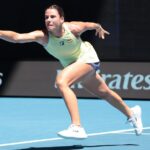How should the tennis world handle a season with Covid-19? – Match Points #16
In the latest episode of Match Points, Noah Rubin, Ben Rothenberg, and Simon Cambers talk to host Josh Cohen about Roland-Garros’ safety measures regarding the coronavirus pandemic.
This Match Points panel touched on all things Roland-Garros while also looking ahead to next year’s tennis season. Just because the US Open and French Open are the final two Grand Slams in 2020 doesn’t mean they will be the last ones to deal with coronavirus issues.
A lot of questions at Roland-Garros
“If you’re comparing the French to the US Open, (the US Open) did a phenomenal job of organizing the event and making sure everything was in order,” Noah Rubin said. “Now at the French Open, you have a lot of questions of how things should go about. We have to have a baseline for how to react to certain situations.”
All three panelists touched on the subject of the debacle involving Fernando Verdasco, who tested positive for COVID-19 before the tournament started and was forced to withdraw.
Although Verdasco exited, at least the tournament itself moved forward. That did not always seem like a guarantee.
“This was a big mess that the French Open had with its (planned) attendance, going from 20,000 (daily) to 11,500, to 5,000, all the way down to 1,000 just days before the tournament,” Rothenberg reflected. “This tournament was in real danger of being cancelled, honestly. That was a uniquely French Open mess. The US Open seemed to have its act together a lot better, at least at the outset. They had their own issues when positive tests came up, but this is a mess.”

Cambers agreed for the most part, although he also brought a slightly different perspective to the topic.
“In terms of media, they’ve done a pretty good job,” Cambers commented. “There are far fewer people on site, which means they can space people out better. I feel safer than I thought I would, which is good. But from players’ point of view, we’ve heard that the bubble is not really a bubble. There are all sorts of weird issues.”
Looking ahead to 2021
When the French Open ends this coming weekend, coronavirus-related issues won’t end with it. What does this panel hope to see from the sport of tennis in 2021? Well, they are hoping for drastic change–and they are wondering why things haven’t already changed.
“The entities of tennis have been far more reactive than proactive,” Rubin lamented. “That’s been highlighted time and time again. If we can prepare a little bit for 2021, even 2022, (let’s) starting testing out a few new products — see if we can have a North America tour; see if we can have a Europe tour. To be honest, I’m a guy who’s playing Challengers most often, I don’t want to be going around Europe right now…. I don’t want to be dealing with this; I shouldn’t be put in a position that says, ‘Hey, either you do this or you’re not a tennis player,’ which is what’s happening right now. I want them to try something new.”
“I would want a really radical revamp of what the tour looks like,” Rothenberg said. “I think single-elimination tournaments are a horrible use of human resources right now during a pandemic. To make people fly there, take these risks, doing the travel, doing the quarantining, doing the testing, everything, and for half of them to go away (after the first round). That’s not worth the risk.”
Rothenberg went on to offer a dramatic restructuring that he admits probably won’t happen. At the Australian Open, he proposed, only the 32 seeds would participate and they would first be grouped in round-robin competition. The top two finishers in each group would then advance to 16-player knockout bracket. At the same time of year, other similarly-ranked players could go to events in Europe, the United States, and elsewhere.
“I think they should look more regional,” Cambers agreed. “There’s no question if you can cut the costs for people traveling and cut the fear factor out of it, then players will be happier to do their job — and do it in the places they want to without having to travel across the world, take risks by flying, mixing with too many people.”






